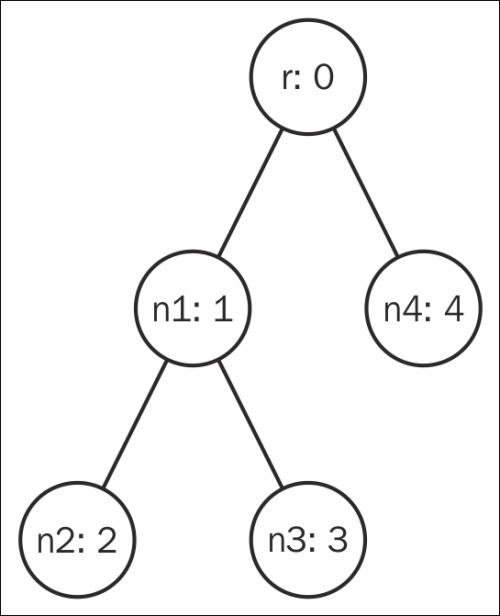Implementing a Foldable instance for a tree
The idea of traversing a tree can be generalized by implementing a Foldable instance. Usually, folds are used on lists; for example, foldr1 (+) [1..10] traverses a list of numbers to produce a grand sum. Similarly, we can apply foldr1 (+) tree to find the sum of all nodes in a tree.
Getting ready
We will be folding through the following tree to obtain a sum of all node values.

How to do it...
Import the following built-in packages:
import Data.Monoid (mempty, mappend) import qualified Data.Foldable as F import Data.Foldable (Foldable, foldMap)
The tree from
Data.Treealready implementsFoldable, so we will define our own tree data type for demonstration purposes:data Tree a = Node { value :: a , children :: [Tree a] } deriving ShowImplement the
foldMapfunction for theFoldableinstance. This implementation will give us a post-order traversal of the tree:instance Foldable Tree where foldMap f Null = mempty foldMap...






















































